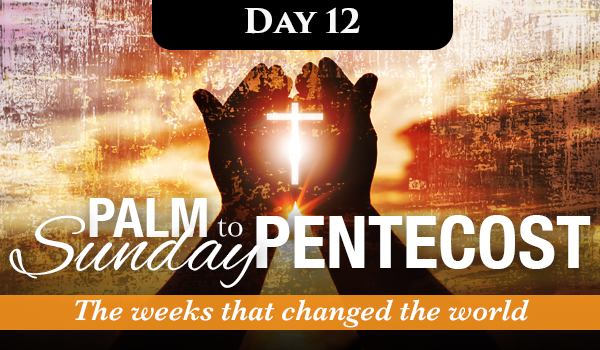Then Pilate asked him, “Don’t you hear the testimony they are bringing against you?”
But Jesus made no reply, not even to a single charge.
Matthew 27:13–14a
If you started this devotional exactly two weeks before Easter Sunday, you would expect to be reading about the crucifixion today (often referred to as “Good Friday”). However, since there has been so much ground for us to cover, we will look at it tomorrow.
In the hours after His arrest, Jesus was bounced around to several places while “on trial.” First, John records that He was brought before Annas, a former high priest and father-in-law of the current one, Caiaphas. Jesus spent several hours in captivity there being interrogated. This was also the location of Peter’s denials.
At daybreak, the religious leaders convened. They asked if Jesus was the Son of God, to which He responded in the affirmative. That’s all they needed to hear, and they decided to take Jesus before the Roman authorities with false additional charges of insurrection and tax evasion. They mocked, spit on, and beat Him before leaving.
It was time to take Jesus before Pilate, the Roman governor of Judea. However, since Jesus was from Galilee, this matter was specifically under the jurisdiction of Herod Antipas, so Pilate wanted Jesus to be Herod’s problem. (Herod Antipas was the son of Herod the Great and the one who had John the Baptist beheaded.)
Herod was actually interested in meeting Jesus because he had heard much about Him. But when Jesus refused to talk or perform a miracle, and with the religious leaders accusing Him, Herod and his soldiers mocked Jesus and sent Him back to Pilate.
Matthew 27 records that Pilate had a custom of releasing a prisoner at this time of year, according to the people’s choice. He gave them the option of Jesus or a notorious murderer named Barabbas. Under the influence of the chief priests, they chose the latter. When Pilate asked what to do with Jesus, they demanded crucifixion. Ignoring the pleas of his own wife, Pilate placed the responsibility of this decision on the religious leaders and the crowd. He allowed Jesus to be flogged and sent off to be crucified.
So, because of Pilate (out of a desire to satisfy the crowd), the religious leaders (out of jealousy, among other motives), and the people (out of rage), Jesus was now on course for death. Just as the priests had been responsible for sacrificing the lambs for centuries, now they would also be responsible for slaying the one true Lamb. However, despite the appearance of being a result of their actions, this was all foreordained by God. The Son of God had to die for the sins of the world.
As I think about practical application from this dark chapter in Jesus’ life, I am reminded of God’s call for us to be of good character. The Old Testament law and Proverbs speak often against sins such as being a false witness, jealousy, anger, and pride. The religious leaders of Jesus’ day were guilty of all these and more. Instead of being honest, humble, and content servants of God, their sinful behavior won the day.
Lest we be the first to cast stones, we must agree that there are days when we let sin rule over us. The key is repentance and not giving in to a sinful lifestyle. Let us instead dwell on whatever is true, noble, right, pure, lovely, admirable, excellent, and praiseworthy (Philippians 4:8).

